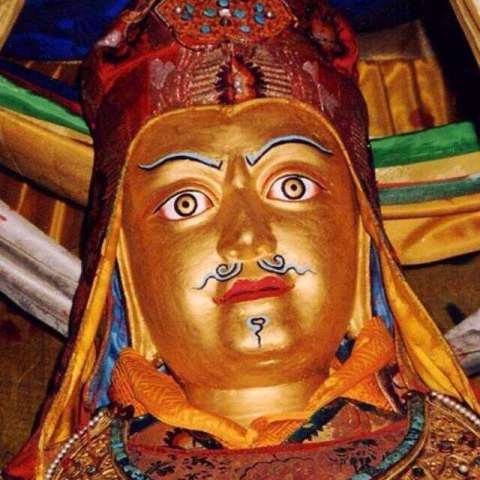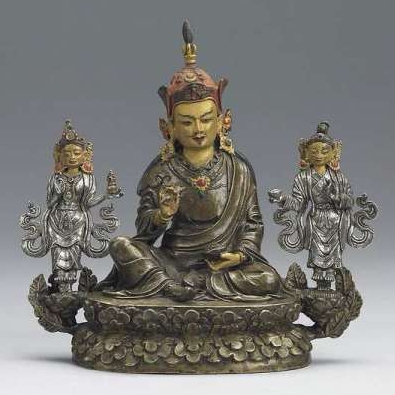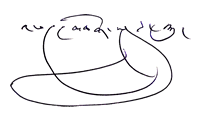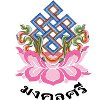|
Four Points to Apply to Your Life
 
Dear Friends Near and Far,
I hope this finds you all well and happy. I recently finished two months of retreat and have been keeping you all in mind and heart.
At the moment at our monastery in Kathmandu, Nepal, Tsikey Chokling Rinpoche and Chokyi Nyima Rinpoche are presiding over the annual Ngakso (Ocean of Amrita) puja which runs twenty-four hours a day for nine days dedicated to the health and happiness of all beings and the fostering of world peace. Likewise, Gyari Rinpoche, my father-in-law, has been performing 100,000 recitations of Leu Dunma, The Supplication to Guru Rinpoche in Seven Chapters in Sikkim, India. They will complete the 100,000 recitations today.
What I’d like to mention in today’s message are a few points that apply both to the mundane world and the spiritual path.
- Whatever the circumstance may be there is such a difference between people who gather merit (or positivity) and those who do not. What’s meant by ‘accumulating merit’? Firstly, to be able to cultivate compassion. To have an altruistic motivation and to do things to benefit others. To help people in an appropriate way such as giving advice, and likewise to be generous, disciplined, to develop patience—to develop these kinds of qualities and do things with a pure, sincere wish to help.Moreover, someone who regards themselves as a Buddhist should ‘make offerings upwards and practice generosity downwards’ meaning that one should make offerings ‘upwardly’ to our objects of refuge, the buddhas, our spiritual teachers, and the sangha, the community of practitioners. Similarly, you should give ‘downwardly’ to sentient beings. So make offerings and practice generosity like this on a regular basis.It is through these kinds of actions (done with a pure motivation) that one gathers merit, and the result of this is that you will encounter fewer obstacles and hindrances in this life (whether they be outer, inner, or secret), your aims will be fulfilled, and things will go smoothly for you.
- In addition to gathering merit, we also need good role models to follow. It has been more than 2500 years since Buddha Shakyamuni passed into parinirvana, yet the transmission of his teachings remains up till today embodied and upheld in the present genuine and qualified dharma teachers. These teachers are excellent role models for us. To follow their example and teachings is excellent. They really are one of the best examples we can find.In my case my role models are my meditation teachers, for example Kyabjé Tulku Urgyen Rinpoche and Kyabjé Nyoshul Khen Rinpoche. Both of these teachers were extraordinarily kind-hearted, generous, caring, and patient, and outstanding meditators. They were amazing people. So you likewise need to find this kind of role model, someone with truly excellent qualities, to look up to and try to emulate. As Buddhists, our shared role model is of course Buddha Shakyamuni himself.By relying on such role models, we will be able to mould and transform our character and behaviour into something much more positive, and as a result we will encounter fewer difficulties.This is particularly important for dharma practitioners since as practitioners we need to unravel the true intent and meaning of Buddha’s teaching: the innate, natural state. We need to understand this and know how to train in it. And to take a genuine dharma teacher as your example and follow their teachings will booster and enhance your understanding and practice of the natural state.
- Whatever activity it is you are involved in, whether mundane or spiritual, you need to approach it withintelligence. You need to ask yourself, “Okay, what qualities are needed to fulfil this role? How should this job be done? What information is needed?” You need to acquire the necessary skills and qualities, to listen to and learn from others, and to change yourself. As for learning, you all know how to do this. It can sometimes be difficult to listen to and learn from others but we need to do it. And thirdly, change—we need to mould and transform ourselves: if you are lacking certain needed qualities, then learn to develop them. If you see you have some faults, then slowly work on transforming these faults; don’t just leave them as they are. Otherwise you will never improve.In terms of the dharma, we need the intelligence of knowing the natural state and never parting from the motivation of bodhicitta, the mind of enlightenment. These days many practitioners are losing bodhicitta. Sometimes I also find myself thinking, “Can I really reach enlightenment? Is it really possible? And in any case, will it really be of benefit to others and to myself?” The state of enlightenment, buddhahood, is the ultimate benefit, the ultimate bliss, the ultimate peace, and the ultimate, unsurpassable method to benefit oneself and others. This being so, we need to develop the wish and determination to attain enlightenment. This is bodhicitta, the mind of enlightenment. So as a practitioner, with intelligence we should receive genuine dharma teachings from a genuine teacher, reflect upon them genuinely, and put them into practice genuinely.
- Dignity. Sometimes we encounter problems and challenges in our mundane lives, or we experience failure. In these cases, we shouldn’t let the setback rob us of our dignity and confidence. We should approach the situation in a constructive way: think, “Okay, I didn’t succeed here. Why not? What was I missing? What did I do wrong?” And take it all as experience. Then set out to remove the faults and flaws that caused the problem so you’ll be able to succeed in the future. You should feel confident that, yes, I can attain enlightenment, I can benefit beings. Here in samsara I can help my family, I can support the sangha and benefit sentient beings. I can do it. I can achieve things, and I can live a joyful, meaningful life. In this way, we need to nurture inner dignity and confidence, even in the face of challenges.This kind of dignity is such an important quality, and for practitioners it is simply indispensable. Kyabjé Tulku Urgyen Rinpoche would say that without dignity you cannot succeed in dharma practice, and in particular in meditation. This dignity is a kind of courage, a decisive, unwavering confidence. It is not a shaky or hesitant state of mind, like thinking, “Oh, I am not sure if meditation will really be beneficial or not… I wonder if my meditation is okay or not…” Nothing like that.Some people know the dharma, they understand, but still ask questions. This is a clear sign of lack of confidence and doubt. Of course if you don’t understand something or don’t know something then you need to ask and should ask, but when you find yourself asking questions and feeling doubt about things you already know that is a sign of lack of dignity. So what is the remedy for this? How can practitioners develop this dignity? Supplicate the buddhas and Supreme Ones (buddha, dharma, and sangha). This is the general approach common for all Buddhists. If you are a Vajrayana practitioner, also supplicate your gurus and supreme yidam deity and train in developing divine dignity. Whichever approach you follow, make supplications that they bless you with inner dignity.
Since some of you reading this email are probably not practitioners and some of you are, I am sending you these four points since they are relevant to both. I am well and I hope you are all healthy and happy too.
With aspirations,
Sarva Mangalam (May all be auspicious)

Kyabgön Phakchok Rinpoche
For more information and teachings, please visit:
 
www.phakchokrinpoche.org / www.cglf.org |
